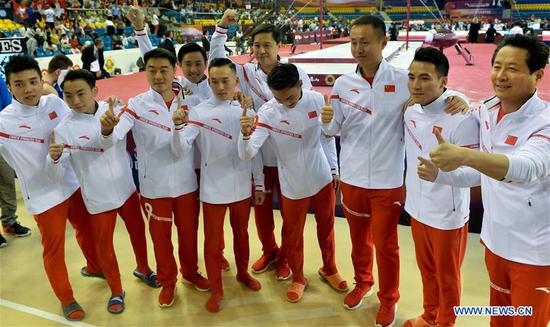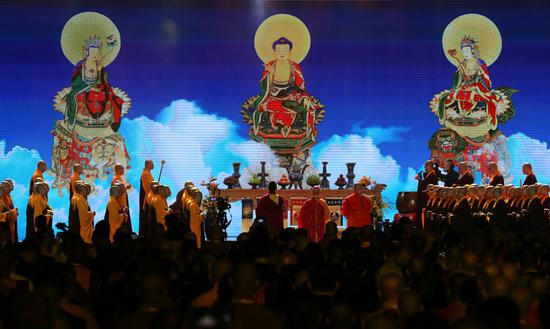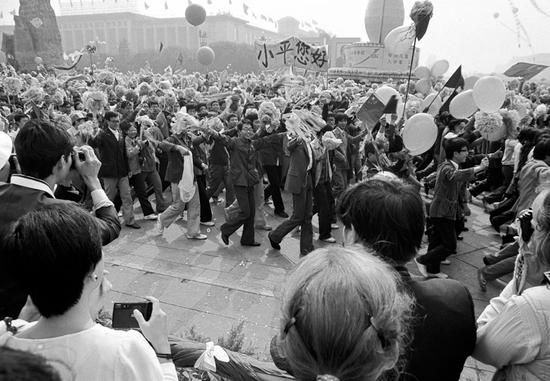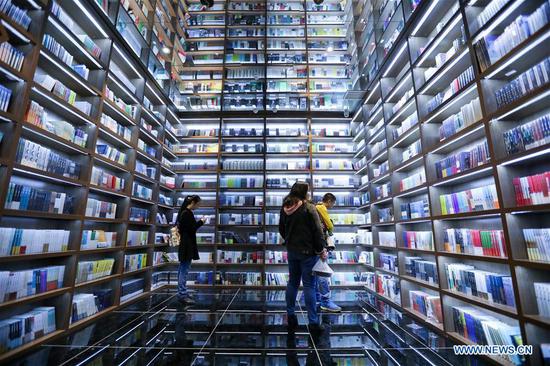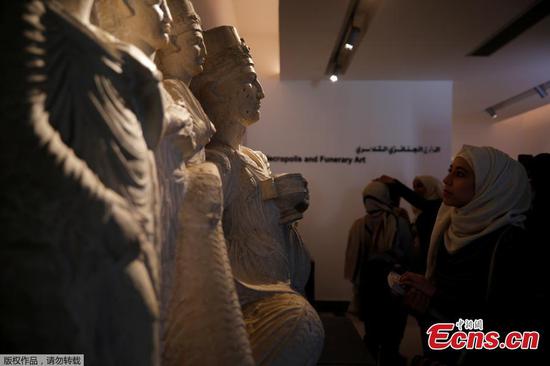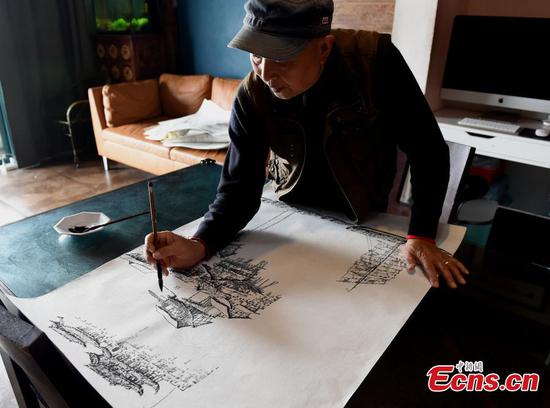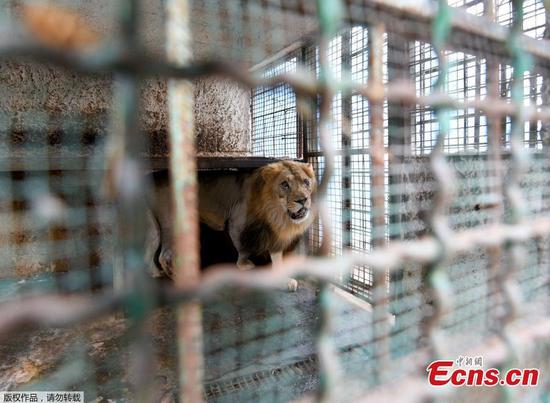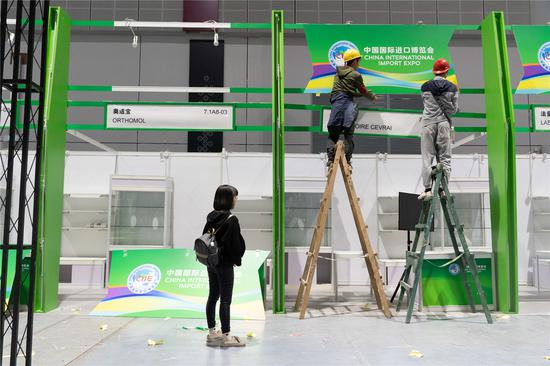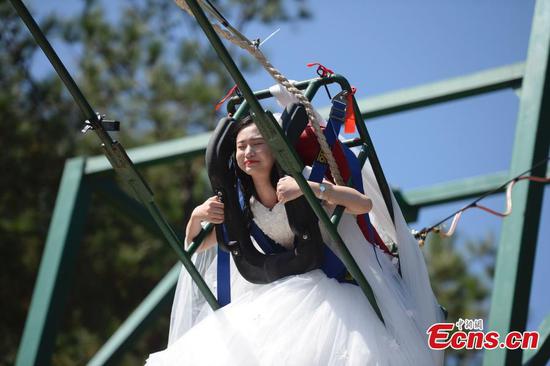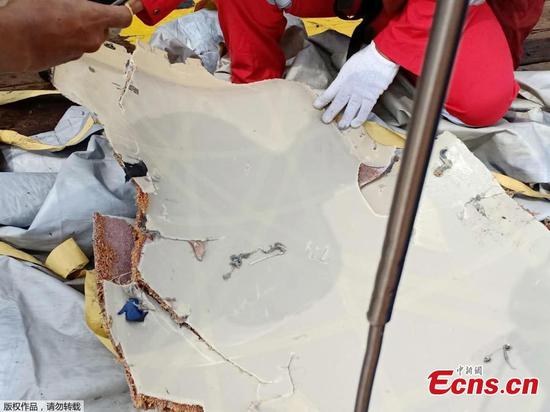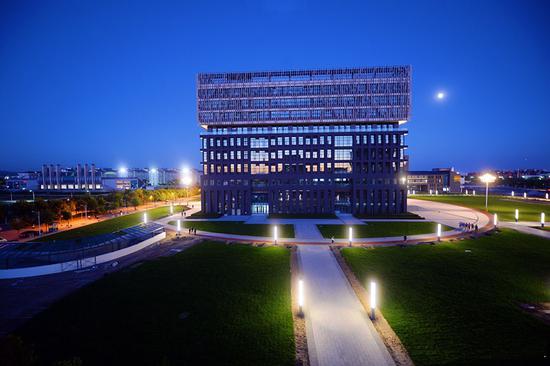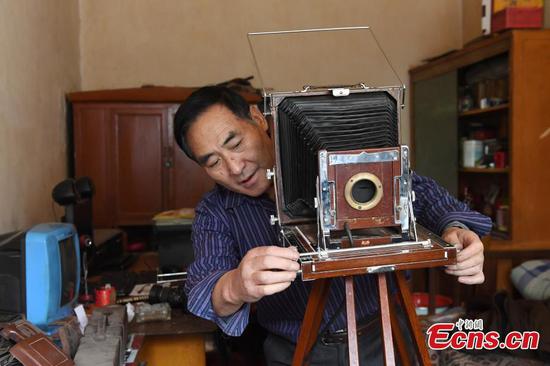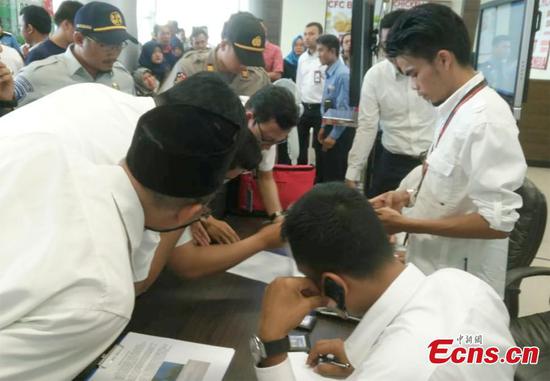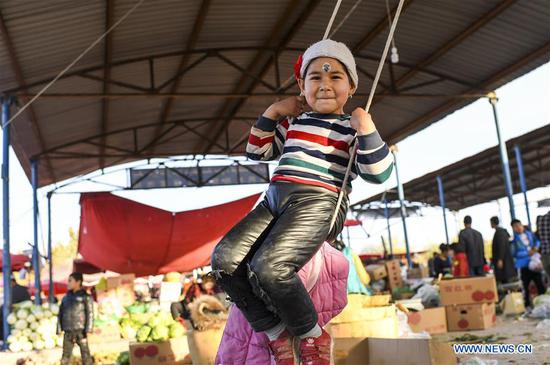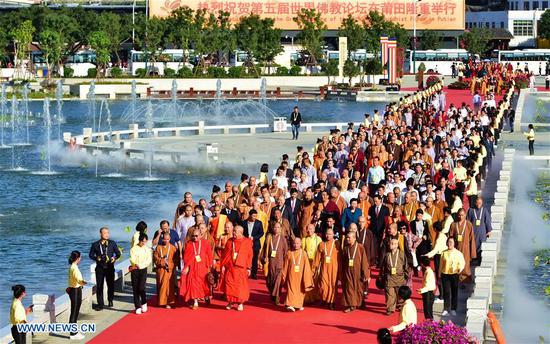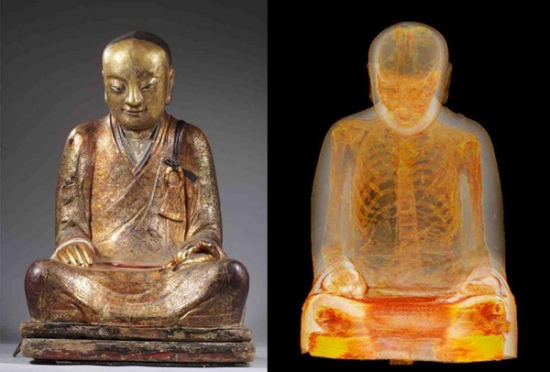
A CT scan shows a body, whose internal organs were removed, concealed in an ancient Chinese statue of a Buddha. (Photos provided by the Drents Museum)
Representatives of two villages in China's southeastern province of Fujian will speak at a court in Amsterdam on Wednesday to argue against a Dutch collector over a Song-dynasty mummy buddha statue, which they believed had been stolen from their village temple.
It is a final hearing before the Dutch court delivers a judgement of this repatriation case of religious, cultural and ethical significance. The villagers and the defendant have submitted several rounds of written statements and evidence to the court since the case was brought in May 2016.
"As the plaintiffs (the villagers) would need to address new facts and evidence, including experts opinions, it would not have been a fair hearing without the plaintiffs having been able to comment on these facts," Dutch lawyer Jan Holthuis representing the Chinese villagers told Xinhua.
Six villagers have been granted visa by the Consulate of the Netherlands in Guangzhou.
"We are buying high-speed train ticket now. Hopefully we will reach Guangzhou tonight and get our passports tomorrow morning. Then we will fly to Amsterdam," Lin Kaiwang, one of the villagers told Xinhua over the phone on Monday.
The two villages where Lin and his pals live sit 1,000 km to the north of Guangzhou. In their village temple, a Buddha statue, with an intact mummified body inside, had been worshipped for over 1,000 years. In December 1995, the statue, called Zhanggong Zushi, or Monk Master Zhang Gong, disappeared.
In March 2015, villagers saw in TV news that a statue was on exhibition in Hungary and immediately recognized it as their lost Buddha. Amsterdam inhabitant Oscar van Overeem, who apparently bought the statue in mid 1996, agrees that the statue comes from the province of Fujian, but insists that it is not the statue stolen from the villagers' temple. He once agreed to return it if his conditions were met. When negotiations failed, the Chinese villagers filed a lawsuit against him in the Dutch court.
"That the VO (Oscar Overeem) statue and the Villagers statue are the same needs to be established by the plaintiffs first before the case can go to further argumentation on whether VO was in good faith and obtained ownership thereof," said Holthuis.
Before this coming hearing, the villagers have submitted six new items of evidence, including an investigation report by the Fujian Relics Authentication Center dated April 28 2018.
"This report sets out, in a very structural and detailed way, why the statue of VO is Zhanggong Zushi," said the Dutch lawyer.
At the last hearing on July 14, 2017, the Dutch collector stated that he had reached an oral deal and exchanged the statue for other artworks with a "collector-investor-intermediary", who "is aware of the mummy controversy and political sensitivities and prefers to remain anonymous".
The villagers asked the court to declare that the party with whom VO apparently exchanged the statue would legally not be in good faith, and would therefore not be able to obtain ownership of the statue. The court allowed a new round of submissions and Van Overeem refused to provide clear evidence on the exchange and the identity of the new owner.
The court then granted permission to a motion filed by the plaintiffs, to preserve evidence by seizing certain specifically defined data on the computer of VO.
"These seized data are secured and safe with a third independent party. The most important is that we might have secured data on VO's computer with respect to the exchange arrangement with a third party exchanger. Whether the judge will eventually grant the villagers access to these data is part of the ongoing proceedings," Holthuis told Xinhua.
After the hearing on Wednesday, there will be a judgment.
"It can be a final judgment or an interim judgment, for instance a judgment that orders one of the parties to provide proof of a position in fact," according to the Dutch lawyer.















